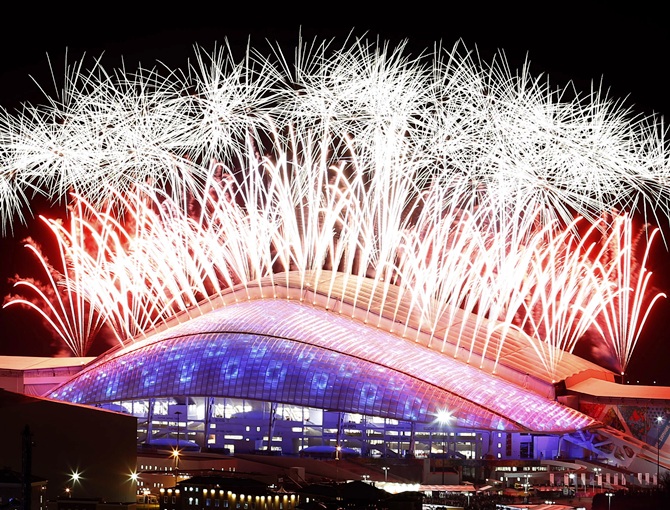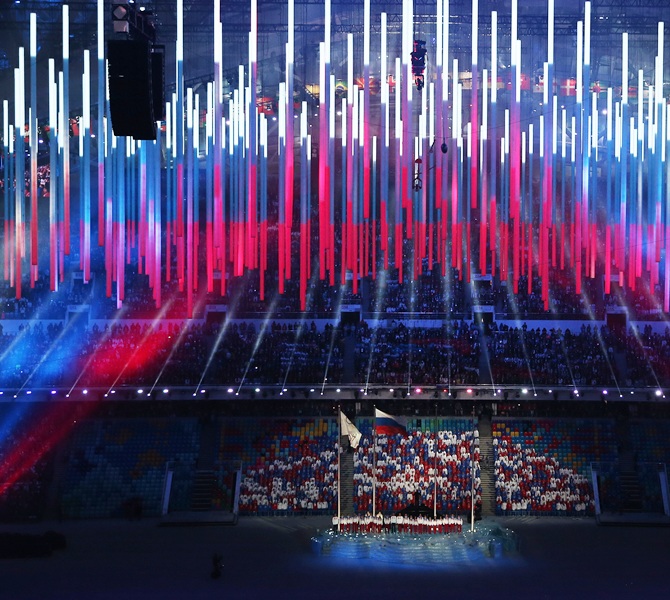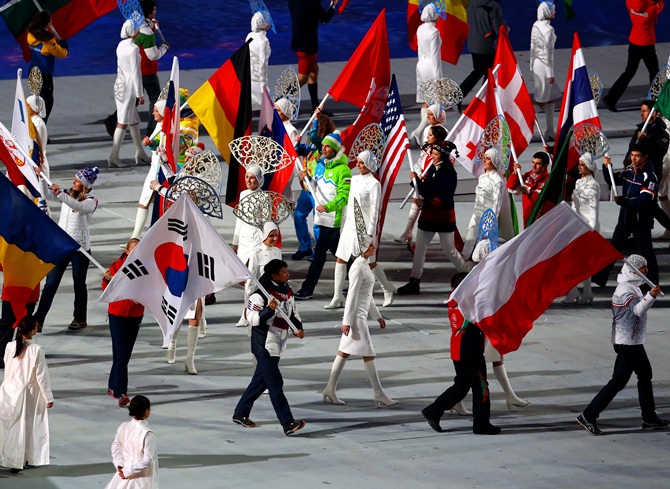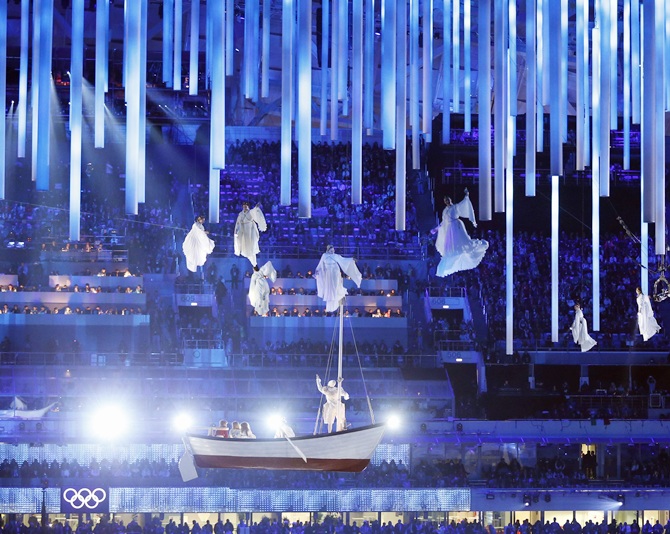
Sunday's closing ceremony at Russia's first Winter Olympics will aim to paint the host nation in softer colours than the muscular spectacle that kicked off the Games, organisers said.
The show at the gleaming Fisht Stadium on the Black Sea coast will take viewers on a poetic journey through Russia's rich heritage of visual arts, music, literature and dance.
And while the February 7 opening ceremony was all about asserting Russia's place in the world and underlining how it had finally shaken off the fetters of its Soviet past, one of the buzz words for the end-of-Games farewell was ‘nostalgia’.

"They are two very complementary shows," said Marco Balich, artistic executive producer of the ceremony.
"As grand as the opening was, with this one they went for another side of Russia - intimate, full of heart, and they (Russian organisers) mentioned the word 'nostalgia'," he said.
While details of the show are a closely guarded secret, he did say that Sochi's would be the biggest Winter Olympics closing ceremony ever staged, fitting for a Games estimated to have cost $51 billion to stage - more than any other.
Under the watchful eye of President Vladimir Putin, for whom a successful Olympics has been crucial to his prestige, the athletes will parade across the giant stage to the applause of a packed arena.

Russia's team can expect an especially loud cheer after winning 13 gold medals, more than any other country, far exceeding even Putin's wildest dreams in the build-up.
The feel-good factor the athletes have created has gone a long way to dispelling criticism during the build-up to the Games of Russia's human rights record, allegations of corruption and profligacy and the threat of Islamist militant attacks.
Voices of dissent have been heard, but they have largely been drowned out by sporting endeavour on the ice and snow in Sochi's impressive Olympic Park and amid the peaks of the Caucasus Mountains towering in the distance.

International Olympic Committee President Thomas Bach said the Russian hosts had proved their critics wrong.
"We saw excellent Games and what counts most is the opinions of the athletes and they were enormously satisfied," he said.
The IOC's Bach told reporters he would break with a decades-long tradition and avoid using a single, snappy phrase to sum up the Russia's first Winter Olympics.
"What I want is not to give my judgment," Bach said. "I want to convey the messages I heard from the athletes, National Olympic Committees, international federations, sponsors and broadcasters.
"This will be the purpose of the speech tonight. My English is not good enough to have that one adjective," he joked.

Like the opening ceremony, the close will once again celebrate great Russian painters, writers, musicians and dancers.
Dissident author Alexander Solzhenitsyn will be remembered alongside Alexander Pushkin and Fyodor Dostoyevsky, while painters including Kazimir Malevich and March Chagall will inspire the backdrop to the final chapter of the Games.
Both Moscow's Bolshoi Ballet and the rival Mariinsky troupe from St. Petersburg will be represented, Balich said, while a grandiose mass piano concert will ring out to the music of Sergei Rachmaninoff.